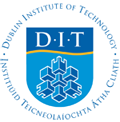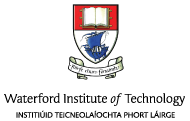WELCOME TO THE OFFICIAL WEBSITE OF TIC 2016
Tunku Abdul Rahman University College is organising its fourth International Conference on Learning and Teaching (TIC2016) with the theme of "Empowering 21st Century Learners Through Holistic and Enterprising Learning"
The objectives of this conference are to promote collaborative research, sharing of experiences, knowledge and expertise in the following areas:
- Globalised Online Learning
- Methodologies and Strategies for Holistic and Enterprising Learning
- Curriculum Enhancement and Pedagogical Models
The conference will comprise of keynote addresses, peer-reviewed papers, plenary sessions, posters and workshops over the duration of two days.
Our theme for TIC2016 is "Empowering 21st Century Learners Through Holistic and Enterprising Learning"
According to Denti (2012) empowerment can best be defined as a process that provides students with a sense of confidence, capability, competence, and self-esteem to meet life's challenges. As 21st century learners, students need educators that know how to inspire and motivate them to learn and not only to be educated. There is a fundamental difference between learning and education. Learning is definitely part of the education process but to be truly educative, it must be valuable and meaningful to an individual's life from a broader perspective (von Glaserfeld, 1995; Williams & Burden, 1997). Educators are often able to generate a great deal of learning in their students but if it cannot be applied to a larger part of their lives then its value is limited. Hence, learning must be holistic and applicable to a student's life.
In the executive summary of the Malaysian Education Blueprint, the empowering of schools and teachers is seen as the way forward for transforming education in Malaysia. In addition to this, it is also necessary to emphasise the need for quality in education. UNICEF (2000) defined quality in part as "learners who are healthy, well-nourished and ready to participate and learn, and supported in learning by their families and communities". Hence, quality in education involves enterprising learning where students are in environments which require them to solve problems in an innovative and progressive manner. This process takes time and commitment from an educator, to model skills and deliver contents that will enable students to develop positive self-images, have decision making power, and most importantly have adequate knowledge to make healthy informed choices. This ultimately leads to enterprise learners. Enterprise learning encourages all learners to learn and develop in a way that meets their needs and develop skills for learning, skills for life and skills for work.
The theme of TIC 2016 with its three sub-themes echoes this in its call to focus research on holistic and enterprising learning so that future generations may be empowered and transformed by it.
Reference
Denti, L. G. (2012). Proactive classroom management K-8: A practical guide to empowering students and teachers. New York: Corwin.
von Glasersfeld, E. (1995). Radical constructivism: A way of knowing and learning. London: The Falmer Press.
Williams, M., & Burden, R. L. (1997). Psychology for Language Learners. London: Cambridge University Press.
UNICEF (2000). Defining quality in education. A paper presented at the meeting of The International Working Group on Education Florence, Italy June 2000.








